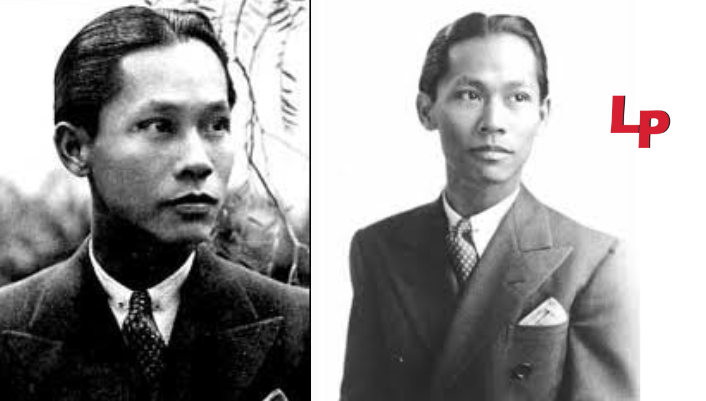Carlos Bulosan Biography – Carlos Sampayan Bulosan was a Filipino-American novelist and poet, an influential literature icon whose foremost inspiration arose from his own life – a story of an immigrant in America. Despite the acknowledged literary contribution Bulosan has made in American as well as in Filipino literatures, he is most famous for his semi-autobiographical novel known as America Is in the Heart. Being a Filipino born and growing up in America, Bulosan lived a rather difficult life pressing with sickness and fighting for justice for the downtrodden.
In an interview conducted by LifePages Media with Carlos Bulosan we were able to gather information regarding this personality which we will unveil in this article such as his net worth, age and achievements.
Carlos Bulosan Biography
| Category | Details |
|---|---|
| Full Name | Carlos Sampayan Bulosan |
| Date of Birth | November 24, 1913 |
| Place of Birth | Binalonan, Pangasinan, Philippines |
| Date of Death | September 11, 1956 |
| Age at Death | 42 years |
| Nationality | Filipino-American |
| Siblings | Aurelio Bulosan |
| Wife | Not Disclosed |
| Occupation | Novelist, Poet |
| Famous Works | America Is in the Heart, The Laughter of My Father |
Early Life and Background
Carlos Bulosan was born on November 24, 1913, in Binalonan, Pangasinan, Philippines, to Ilocano parents. However, his exact birth date remains a subject of debate, with some sources suggesting 1911 based on baptismal records. Bulosan grew up in a poor farming family, and the hardships his family faced shaped his understanding of class struggles, a theme that later dominated much of his writing.
Bulosan’s early life in the rural Philippines exposed him to the inequality and exploitation faced by farmers, which would later become the foundation for his literary works. His hometown of Binalonan also served as the backdrop for much of his semi-autobiographical novel America Is in the Heart.
Immigration to America
At the age of 17, Bulosan left the Philippines in search of a better life in America, like many Filipinos during the American colonial period. He arrived in Seattle, Washington, in 1930, only to be confronted with racism and harsh labor conditions. Bulosan worked various low-wage jobs, including as a farmworker and a dishwasher, facing discrimination and exploitation as a migrant worker.
His difficult experiences in the United States fueled his passion for writing about the injustices faced by immigrants and laborers. His work often reflected the struggles of the Filipino community in America, their dreams, and their harsh realities.
Battle with Tuberculosis
In 1936, Bulosan’s health deteriorated when he contracted tuberculosis, a common ailment among poor workers at the time. He spent two years in the Los Angeles County Hospital, where he underwent several surgeries. Despite his illness, Bulosan used his time in the hospital to read extensively and write prolifically. It was during this period that he began to solidify his place as a writer, using his pain and struggles as material for his work.
Literary Career and Major Works
Bulosan’s most famous work, America Is in the Heart (1946), is a semi-autobiographical novel that explores the immigrant experience in America, racism, and the struggles of migrant laborers. The novel has become a classic in Asian-American literature, highlighting the deep social and economic inequalities faced by immigrants.
Other notable works include The Laughter of My Father (1944), a collection of humorous and poignant short stories, and The Cry and the Dedication (published posthumously in 1995), which tells the story of the Hukbalahap Rebellion in the Philippines.
Some of his other works include:
- Letter from America (1942)
- My Father’s Tragedy
- The Romance of Magno Rubio
- If You Want To Know What We Are
- My Father Goes to Court
Family and Personal Life
Carlos Bulosan’s personal life remains largely undocumented, particularly in terms of his marital status and children. While some sources suggest that he was married, no concrete details about his wife or children have been publicly disclosed. However, it is known that he had a brother, Aurelio Bulosan, who, like him, struggled to survive as an immigrant worker in the United States.
Death and Legacy
Carlos Bulosan passed away on September 11, 1956, at the age of 42. Despite his relatively short life, his impact on American literature, especially in the realm of immigrant narratives, remains profound. Through his writing, Bulosan gave voice to the struggles of Filipino immigrants and migrant workers, making his work an essential part of both Filipino and American literary history.
His legacy continues to inspire writers and activists who fight for social justice and immigrant rights, with America Is in the Heart still widely read and studied today.
Conclusion
Carlos Bulosan’s life and work are a testament to the resilience and strength of the human spirit in the face of adversity. His writings not only reflect his personal struggles as a Filipino immigrant but also serve as a powerful commentary on the broader issues of racism, poverty, and injustice. Bulosan’s legacy endures as a voice for the marginalized, and his contributions to literature continue to resonate with readers around the world.
